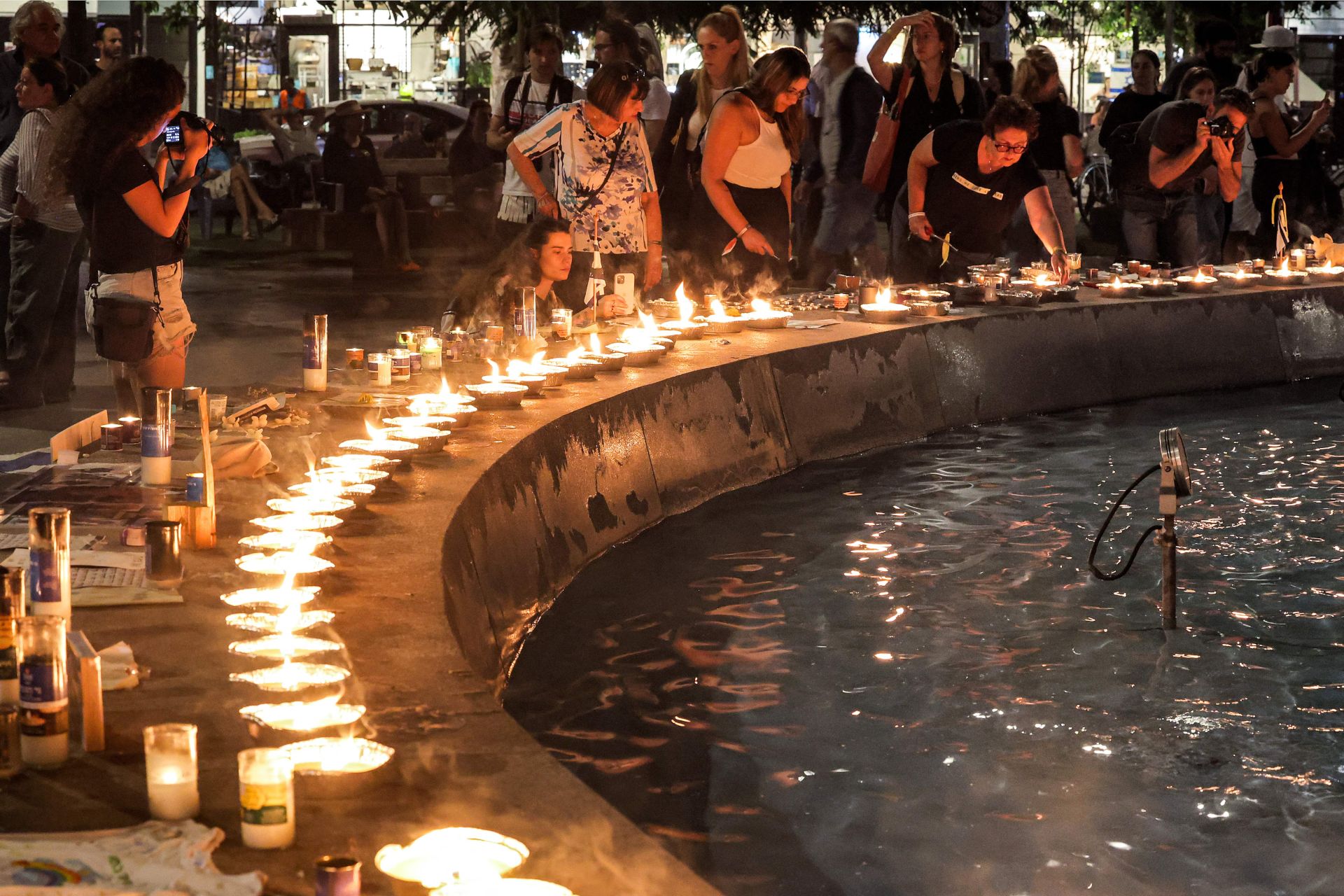“On the 7th of October I was on my way to a day out in the north of England with my family when I opened a news feed and found out that things are kicking off between Israel and Gaza,” Sharone Lifschitz tells New Lines magazine’s Joshua Martin. “My parents live about a mile from Gaza. I called my mom, and she didn’t answer.”
By the evening, it had become clear that her parents were among the hostages kidnapped by Hamas. Her mother, Yochaved Lifschitz, was freed 16 days after the attacks, and images of her handshake with her former captor flashed around the world. Her father, Oded, remains in Hamas captivity. “So we are continuing to speak to whoever would listen in government and in media and try to advocate for their return.”
With over 200 hostages still in captivity in Gaza, it’s a nightmare she is far from alone in experiencing. “There’s not one family who has not been affected,” she says. And yet many of those affected say that the Israeli government has all but abandoned them.
“The truth is that not only has the government not been forthcoming with them, but it’s not clear what the government is doing, if anything, to get these hostages back,” says Noga Tarnopolsky, an Israeli journalist based in Jerusalem. “And so these families feel forsaken and abandoned.”

“I am for everything that works.”
In the face of such apparent official indifference to their plight, some of the families have advocated for a bold proposal: everyone for everyone. In other words, release all of the Palestinians in Israeli detention — a number that has grown dramatically since the war began — in exchange for the hostages. “I am for everything that works,” Lifschitz says.
Tarnopolsky is more skeptical. “The offer has never been made in any way by Hamas,” she says. “I think that if this were a real offer, I think that the clamor for it would be so intense that the government would at least have to consider it.”
But such a prisoner swap remains the only real hope in the eyes of many of the families, who continue to push for it in the face of apparent government indifference. It may also be the only hope for some Palestinian detainees, many of whom are held without charge — and, according to civil rights groups, face serious human rights abuses in prison.
Since Oct. 7, Muzna Shihabi, a former adviser to the PLO negotiation team says, “according to Palestinian officials, the number has doubled.” Many, she says, report that their treatment has become even more severe over the past month.
But as long as Israel and Hamas remain as unwilling to negotiate as they currently seem to be, their plight — like those of the Israeli, Thai and other nationals held in Gaza — is unlikely to end anytime soon.
Produced by Joshua Martin


